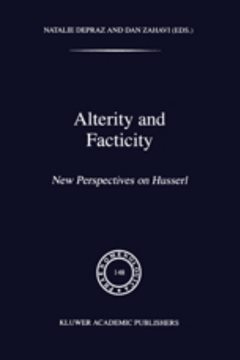Attitude — facticity — philosophy
pp. 57-85
Abstract
In what sense is Husserl’s phenomenology philosophy? To answer such a question properly - or fruitfully - we should not begin with a definition of “philosophy,” affecting that we have at our disposal a prior understanding of what philosophy is, and thus only need to investigate whether or not phenomenology, as it was understood and practiced by Husserl, fulfills our criterion. Rather, I would argue, part of the sense in which phenomenology is philosophy is that it itself is to make the decision, in the course of its meditations, precisely what philosophy is to be. This is one of the consequences of phenomenology as an investigation of “origins,” a reflection on “beginnings”2 To be open to being guided exclusively by the “original” requires not only a freedom from presuppositions, but an orientation to the “newness” of the origin, of its originality; accordingly, of prime importance is a willingness to begin philosophy “ever anew.” Thus “philosophy” as a fully developed, functioning reflection is, as it were, the result; the beginning is only the promise of something like philosophy, which is accompanied at most by a vague sense of what is at stake in philosophy, but by no means a prior, explicit understanding of its content. Thus there is a sense in which, at the beginning of phenomenological reflection, we do not really know what we are doing; and this is possible, or meaningful, only if we understand that philosophy can function even when its form and content is yet to be defined or established, before it understands itself.
Publication details
Published in:
Depraz Natalie, Zahavi Dan (1998) Alterity and facticity: New perspectives on Husserl. Dordrecht, Kluwer.
Pages: 57-85
DOI: 10.1007/978-94-011-5064-4_3
Full citation:
Dodd James (1998) „Attitude — facticity — philosophy“, In: N. Depraz & D. Zahavi (eds.), Alterity and facticity, Dordrecht, Kluwer, 57–85.



